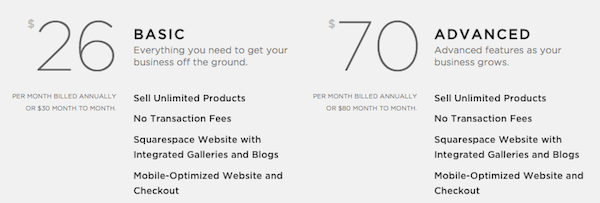Before we talk about some of the ways to set up an ecommerce store or online shopping cart, let me just say that Magento is a great solution.
It’s perfect, in particular, if you have some coding knowledge and want to use the company’s open source framework to set up an online store. There are also paid extensions and there’s an enterprise version of the software.
But, maybe you’re looking for a simpler solution. Maybe you just don’t like the Magento coding base and want to check out some other options?
Here are some of the alternatives that you can look into for launching that business of your dreams!
1. Shopify
Shopify is the number one ecommerce platform that I recommend to most of my readers. It’s a great tool to get started in the world of ecommerce.
What my readers seem to like most is that it’s super fast to set up an online store and even quicker to begin selling your product! This is a huge plus if you’re a small business owner and want to leap into the online world as quick as possible and get your feet wet.
The downside is that despite having many themes, plugins, and a support forum, the functionality is inherently limited. You don’t actually host the coding base, and therefore have less control over your site.
However, this is also a plus, depending on what you’re looking for in a solution. You don’t have to worry about server outages and maintaining the coding base. It just works. They do now have an enterprise version, that might be worth looking into.
2. BigCommerce
What I love most about BigCommerce is that, similar to Shopify, you don’t need to know how to code to set up your shop!
The site offers a lot of functionality and integrations to make it easy to get your business up and running. You can easily optimize for SEO, manage your inventory, and collect orders from one central hub.
Lastly, like Shopify, they also offer an enterprise solution.
3. WordPress + WooCommerce
If you’re running a wordpress-based website, this is the option for you. There are A LOT of plugins out there that you can use to sell things on your website, but in my experience, nothing tops the functionality and the community surrounding WooCommerce.
Simply put, the plugin has great professional reporting, and most importantly, makes it much easier to do taxes based on the location and purchases of your customers.
To back all this up, it’s important to note that WooCommerce powers over 30% of all online stores. That’s a pretty crazy statistic!
Do me a favor, and if you are thinking about using WooCommerce and setting up your website with wordpress, check out Bluehost, the hosting provider that I use (I’ll get a small commission at no expense to you).
4. Squarespace
For friends that are looking to set up a website, I usually recommend looking into Squarespace. Mainly because I like the design/user interface and I think it’s pretty easy to set up a website using the tool.
But, you can also use Squarespace to set up shop and sell your physical or digital products online.
Honestly, I wouldn’t recommend Squarespace over Shopify, but if you’re already using Squarespace, it could be an easier transition.
I think that over time, Squarespace will continue to develop it’s ecommerce functionality (it has a lot as it is) and begin to catch up with Shopify.
5. Volusion
Volusion is another common ecommerce software platform that small businesses use. There are a lot of themes or templates that you can use to get started, as well as support services. Similar to the other sites mentioned, there are also extensions and integrations available.
If I’m being straight forward, I just think that Volusion’s marketing isn’t as good at some of the other major players. That being said, I think they have a GREAT solution that’s worth checking out (they also have a 15 day free trial).
They also have good support services, like webinars and how-to guides!
6. Wix
Wix is one of the top free website builders out there, and lately, they’ve been promoting their ecommerce functionality, which lets you set up an online store to sell goods.
You can use the drag and drop solution to send invoices, accept orders, or even let clients book your time. The dashboard will help you manage order tracking, taxes, and receipts. There are also lots of themes and templates to choose from.
Wix has been growing a lot in the last few years. They’ve also been expanding into other areas, aside from website creation. I used to work out of a coworking space that they run in Manhattan.
7. 3D Cart
Finally, 3D Cart is another alternative to Magento that I’d recommend looking into, particularly if you’re searching for a hosted ecommerce shop. It’s very easy to customize 3D Cart and the software helps with calculating real-time shipping rates.
3D Cart is an older software solution, that was founded in 1997. Still, they’ve continued to update their design and templates to keep with the times. But, they have gotten some negative feedback on the difficulty of adding new products to your store and the variety of options.
I hope that this post has been helpful and that some of these other options to Magento will suit your needs! If not, let me know in a comment below and don’t forget to subscribe to the newsletter!












